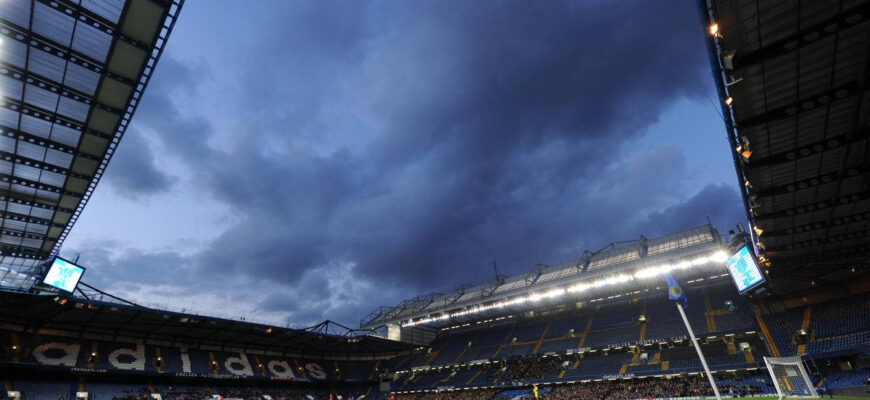In a London derby that left many pondering the very essence of football, Chelsea secured a 2-0 victory over Fulham. Yet, the scoreline scarcely tells the story of a match where the most influential figures weren`t on the pitch, but rather in a remote VAR booth, and a Chelsea squad grappling with the relentless grind of modern football.
The Phantom Goal: A Tale of Two Interpretations
The stage was set at Stamford Bridge for a classic West London clash. Fulham, under Marco Silva, started with commendable verve, looking sharp and coordinated against a Chelsea side that often appeared to be running on fumes. Their enterprise culminated in what seemed a perfectly executed counter-attack, capped by a composed finish from the young Josh King.
The roar of the away support was quickly muffled, however, by the familiar, unsettling pause that now defines many crucial moments in football. VAR intervened, and what followed was a decision that sent ripples of disbelief far beyond the stadium walls. A “careless challenge” by Rodrigo Muniz on Trevoh Chalobah, spotted in his initial movement to create the assist, led to the goal being chalked off. For many, including former Premier League managers, this was not the “clear and obvious error” VAR was designed to address, but rather a microscopic re-refereeing that stripped a legitimate moment of joy from the game.
One might even suggest a certain irony: the technology meant to eradicate debate instead fueled it, turning a seemingly straightforward footballing incident into a protracted, forensic examination. Fulham’s manager, Marco Silva, was later left explaining to a despondent King why a dream goal had been so unceremoniously erased, acknowledging the disheartening reality that such incomprehensible decisions might become a recurring theme in a player`s career, particularly when donning the shirt of a less-favored side.
The Second Act of Controversy: A Penalty Amidst Protest
As if one contentious decision weren`t enough, the second half delivered another dose of VAR-induced drama. A penalty was awarded to Chelsea for a handball against Ryan Sessegnon. On its own, the handball seemed clear enough. Yet, Fulham`s protests were not simply about the incident itself, but about the selective lens through which VAR appeared to operate.
Silva and his players vehemently argued that prior fouls and handballs, including a stamp on Alex Iwobi and a handball by Joao Pedro in the build-up, had been overlooked. It painted a picture where the rules, rather than being universally applied, were interpreted in a fragmented manner, seemingly to the detriment of one team. The sight of Fulham players laughing in disbelief after reviewing the screen themselves underscored the growing disconnect between the on-field experience and the often-perplexing judgments from afar.
Chelsea`s Pyrrhic Points: The Cost of a Never-Ending Season
While the focus inevitably shifted to the officials, it would be remiss not to acknowledge the underlying struggles within the victorious Chelsea camp. This 2-0 win, facilitated in part by controversial decisions, came against a backdrop of a squad visibly fatigued and increasingly decimated by injuries.
Manager Enzo Maresca has sounded alarms, noting that key players like Cole Palmer, Levi Colwill, and Moises Caicedo, who bore the brunt of last season`s minutes, are already battling significant fitness issues. Liam Delap joined the growing list with a hamstring injury, further highlighting the toll of a football calendar that seems to offer little respite. Caicedo, despite his stellar performance against Fulham – notably his crucial block and impressive ball recoveries – is himself under careful management, a testament to the precarious state of the squad`s health.
The “month 13 of their never-ending season,” as the original report wryly put it, paints a stark picture of a team pushed to its physical limits. Their possession play often lacked incision, their high defensive line frequently breached, suggesting a side in dire need of a proper off-season. The points were secured, but the deeper question lingers: at what cost to player welfare and long-term performance?
The Manager`s Lament and the Future of the Game
For Marco Silva, the match was “unbelievable,” a testament to his sheer frustration at what he perceived as a result dictated not by his opponent`s superiority, but by the vagaries of officiating. His post-match composure, a testament to his discipline, could not mask the profound disappointment of seeing his side`s efforts undone by external interventions.
This London derby serves as a microcosm of a larger debate engulfing modern football. Is VAR truly enhancing fairness, or is it merely replacing human error with technological pedantry, sucking the spontaneity and clarity from the beautiful game? When a match devolves into 40,000 spectators (and countless more globally) watching a referee watch replays, one has to question if the “optimal experience” is being delivered.
Ultimately, Chelsea secured the three points, a vital boost in their campaign. Yet, the discussion following the game was not about their tactical brilliance or player heroics, but about the pervasive shadow of VAR and the growing crisis of player fatigue. It leaves us to ponder: if victories are won by inches on a screen and paid for in player health, is this truly progress for the sport we love?







